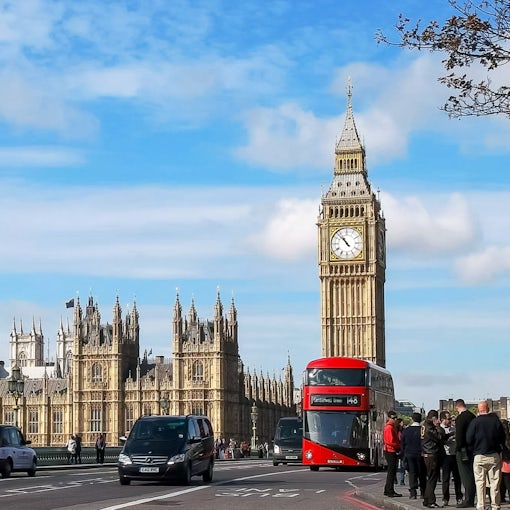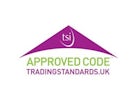Does your rental property require a carbon monoxide alarm? That depends on your property. Let’s take a look at your obligations as a landlord.
What type of tenant/rental properties require a carbon monoxide alarm?
Not all rental properties require a carbon monoxide alarm. Some do, some don’t. The law (in England) states that a carbon monoxide alarm must be installed in any room that is used partly or wholly as living accommodation and contains an appliance that burns solid fuel – even if that appliance is not in use. So that applies to things like log and coal burning stoves and open fires. Failure to follow the rules could lead to a fine of up to £5,000.
Gas and oil boilers do not currently require the installation of a carbon monoxide alarm. However it’s important to note that on 1st May 2018 the government launched a review into whether a carbon monoxide alarm should be required for all heating appliances, including those that use gas or oil. This review will affect all homes in England should the additional protective measures be implemented.
Who’s responsible?
The legal obligation lies with the landlord. Of course you may have a letting agent that manages your property on your behalf. But the ultimate legal responsibility lies with you. On the first day of any new tenancy you must check that your carbon monoxide alarm is in working order and complies with the regulations.
What about HMOs? In the case of selective licensing it’s the responsibility of the license holder to make sure the carbon monoxide regulations are met.
Where should you put a carbon monoxide alarm?
Okay, so you have ascertained that you need to install a carbon monoxide alarm. Where should you put it? The government’s guidance suggests following the manufacturer instructions supplied with your alarm. Typically you will place the alarm at head height between one and three metres from the potential source of carbon monoxide emission.
Note: if an open fireplace is purely decorative and not useable then there is no need to install a carbon monoxide alarm in that room – as long as there’s no other solid fuel-burning appliance.
What happens if you don’t follow the law?
Your local authority is responsible for enforcing the regulations – and has discretion whether or not to impose a fine of up to £5,000. If your local authority finds that you are in breach of the law they will serve a remedial notice, which will specify the action you must take within 28 days – i.e. installing a carbon monoxide alarm. If you fail to do so your local authority will arrange to have it done for you – at your expense.
What is carbon monoxide poisoning?
Carbon monoxide is a poisonous gas that can be deadly. It is a by-product of burning solid fuels and can escape from fuel-burning appliances that are faulty or improperly maintained. (For example a blocked flue or chimney can result in carbon monoxide escaping from a fireplace.)
Breathing in carbon monoxide impairs the ability of the blood to carry oxygen around the body. Initially that often causes a headache, feelings of dizziness or flu-like symptoms. Prolonged exposure to carbon monoxide can cause long-term brain damage, heart problems and – ultimately – death.
Carbon monoxide has no smell or taste, which is why carbon monoxide alarms are so important.
How common is carbon monoxide poisoning?
Ever year there are around 25 deaths from accidental carbon monoxide poisoning in England and Wales. Recently two men were found dead in a rental property in London after suspected carbon monoxide poisoning.
Stay safe and install a carbon monoxide alarm
A carbon monoxide detector costs around £15-£25 and could save a life. That alone should be reason enough to install one in your rental property. It’s something we highly recommend to protect your tenants. Make sure your detector/alarm is approved to the latest British or European standard and checked regularly.
We would also advise making sure boilers, cookers and heating appliances are serviced regularly by someone who is registered with a relevant professional association – such as the Gas Safe Register, the Heating Equipment Testing and Approval Scheme (HETAS) or the Oil Firing Technical Association (OFTEC). Ensure chimneys and flues are swept regularly by someone belonging to the National Association of Chimney Sweeps (NACS), the Guild of Master Chimney Sweeps or the Association of Professional Independent Chimney Sweeps (APICS).
In summary:
- You must install a carbon monoxide detector/alarm in any room that is used partly or wholly as living accommodation and contains an appliance that burns solid fuel
- The legal obligation to do so lies with the landlord and failure to comply could result in a fine of up to £5,000
- Typically you will place the alarm at head height between one and three metres from the potential source of emission
Anything else we can help with?
There’s a lot to think about as a BTL landlord. It can be a challenge to stay on top of ever-changing regulations. Here at Belvoir Cambridge we run an award-winning lettings management service, keeping our landlords in full compliance with their legal obligations.
It’s one of the reasons Belvoir has been named Best Lettings Franchise in the Sunday Times Awards for the past six years. Even better? Our team has been the best performer in the UK every year for the past ten years, generating more returns for our landlords than anywhere else.
Want to know more? Please feel free to contact me directly:
Luke Clarke
Lettings Manager
01780 723333
luke.clarke@belvoir.co.uk
Luke Clarke is Belvoir Stamford Lettings Manager. Luke has over 12 years of property experience and has built up unrivalled expertise in the lettings industry and remains a tried and tested advisor for landlords who not only intrust Luke with the complexities of day to day property management but also to assist them with the ongoing development of their property portfolio.
You may also be interested in:








